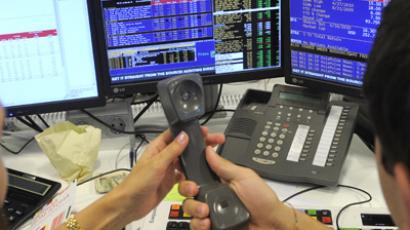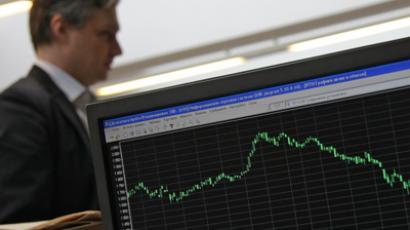Market buzz: All eyes on Greece
Statistics flowing from Europe and the US are expected to be poor on Tuesday, leaving “the Greek factor” the major foreign market driver. Russian indices may begin to fall following five weeks of growth, analysts say.
Russian markets will probably see a couple of drops in the coming days, as currently they stand quite high, Denis Dyomin, head of analytical department at BFA Investment Company, told Russia’s business benchmark RBC–TV. Metals and mining, as well as Russia's financial sector are now overbought, Aleksandr Golovtsov, head of research at Uralsib, specified to RT.However, another growth spurt will follow such a correction at some point in the middle of February, Dyomin added.On a more positive note, political risks in Russia continue to diminish, which supports domestic markets, adds Mark Rubinshtein, a senior analyst at IFC Metropol.The Russian rouble strengthened on Monday, gaining another 0.25%. This reflected in the RTS outperforming the MICEX, with the dollar-denominated index gaining 0.06% to reach 1, 626.65 points, and the MICEX going up 0.01% to stand at 1, 563.10 points.Polyus Gold and Polymetal showed the strongest dynamics on Monday, adding around 23% at some points during the day. This came on the back of renewed rumors about the companies’ merger, says Vitaly Mikhalchuk from Investacafe. However, both Polyus Gold and Polymetal shares dropped by the end of Tuesday trading, showing a 7.9% and 2.5% growth accordingly.Russia’s banking sector, including Sberbank and VTB, has so far been an outsider in the equity market. This came under the pressure of the “Greek factor,” which affected foreign markets as well.Greece has so far failed to reach an agreement with a so-called “troyka” that includes the European Union, the International Monetary Fund and the European Central Bank. The country seeks to receive additional €130 billion to be able to pay its €14.4 billion debt to private investors on March 20.














